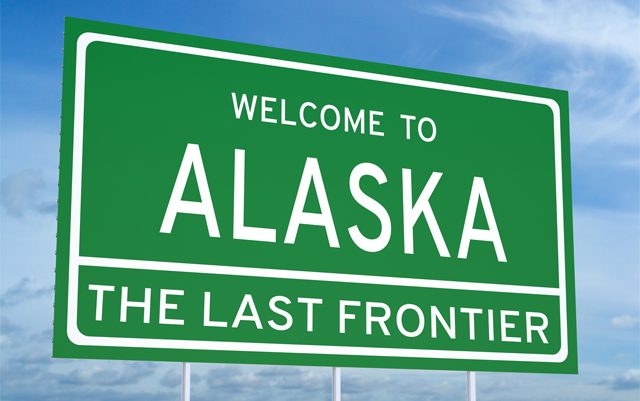As some states move forward with the legalization of recreational cannabis, they run into issues – and the latest to hit Alaska is the problem of what is considered an “advertisement” for cannabis. In some situations it’s quite clear that an ad is an ad – a spread in a newspaper or a commercial on the radio or television, for example. But in other instances, it’s not quite as clear cut. Business owner James Hoelscher went to the Alcohol and Marijuana Control Office to find out if putting his business’s logo on a hotel key card would be considered advertising – and they were unable to give him a definitive answer.
The reason this is so important is that, similarly to alcohol, marijuana advertisements in Alaska must come with certain warnings. So would those warnings need to be on the key card or is a logo alone exempt from such requirements? Many companies will want to have t-shirts, hats and the like with logos on them for sales in their dispensaries – will those be considered advertisements or simply branding products? These are some of the questions that the Marijuana Control Board will need to answer in the coming months – and this was all just brought up for the first time in their last meeting earlier this month.
There is no statewide ban on advertising, as long as it complies with the requirements of not appealing to anyone under 21 years old, not being misleading or false, and ads cannot promote excessive consumption or claim “curative or therapeutic effects”. Regulators must determine what is going to be considered an advertisement and what is not – though their more immediate concerns include keeping ads at least 1,000 feet from schools or facilities providing children’s services or substance abuse treatment, and not allowing them to be on college campuses and public property such as busses and other public transit.
In the meantime, there is also concern over how things are going to change with the new presidential administration – like whether or not they will continue with the hands off approach of the Obama administration or if they will attempt to shut things down (or simply meddle with things to try and make running any cannabis business impossible). With the uncertainty right now, many businesses are unsure about how to move forward with advertising, some deciding to keep it to a minimum and others taking a more bold approach to build business and worry about any backlash if and when it comes to that.
“I’ve just been super, super cautious about it all, because I do know that the regulations are kind of vague on what I can do and what I can’t do,” said Keenan Hollister, co-owner of Pakalolo Supply Co., a retail cannabis store in Fairbanks. “It’s kind of touchy, and I don’t want to be the first one to make those waves,” Hollister said. For now, they’ll stick with free social media, he said.
Even once businesses are up and running there is still a lot of work that will go into creating a successful commercial cannabis industry for Alaska, as well as any of the other states who have taken the leap to legalization. With all the lessons each of these states has had to tackle we will not only get to see the differences in the various approaches, but it will give states considering legalization a good idea of how to regulate commercial cannabis in a responsible way.






